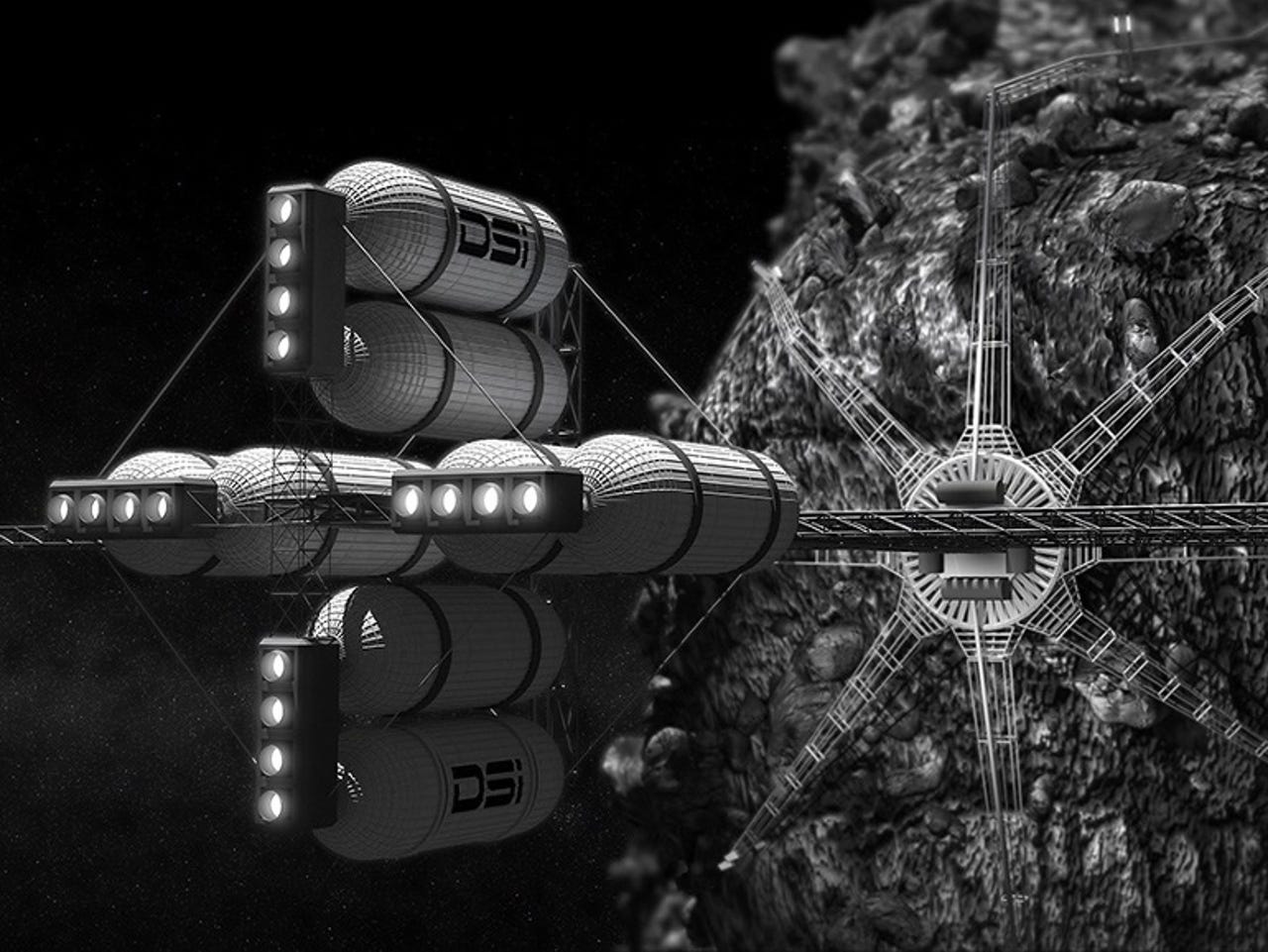Deep space mine: Luxembourg's robot experts have their sights on asteroid mining

University of Luxembourg researchers are helping private asteroid-mining company Deep Space Industries develop robotic technology for its prototype exploration spacecraft.
This summer, Luxembourg became the first country in the world to invest in asteroid mining, with a pledge of €200m ($223m) in funding for the space-mining industry.
Yet the country thinks it has more to offer the sector than just money: it also hopes to inject its intellectual capital into the mix.
Luxembourg is mobilizing homegrown talent at the University of Luxembourg to help private asteroid-mining company Deep Space Industries develop robotic technology for its prototype exploration spacecraft.
The University of Luxembourg's Interdisciplinary Centre for Security, Reliability, and Trust (SnT) will develop an optical vision system for the company's experimental Prospector-X spacecraft.
The research group at the University of Luxembourg's Automation and Robotics Research Group, which is part of the university's SnT Centre, has built up expertise in robotic automation and unmanned aerial vehicle vision systems.
In addition to its optical vision system for Deep Space Industries, the group is developing other technology tailored to mining asteroids but which is not specifically for DSI.
"Spaceships need to be automated," Holger Voos, head of the Automation and Robotics Research Group at the University of Luxembourg, tells ZDNet. "This can't be done by remote control, these mining tasks."
One of Voos's group's main areas of research is mobile robotics. Within that domain, researchers there have already started working with the Luxembourg-based microsatellite company LuxSpace to develop robotic manipulators for space-debris removal.
The group plans to adapt these manipulators for asteroid mining activities. Voos's group also plans to redesign the sensor systems that it has developed for unmanned aerial vehicles for asteroid mining spacecraft.
"We're already working in the area of space robotics. So, of course, the next step would be to operate these space robots with them not near the Earth, but to use these kinds of robots to go to other things, asteroids," Voos says.
However, the greatest challenge is devising a way for these robots to function without air or gravity. But Voos is confident that his team already has the foundation to get new space-mining projects off the ground.
"From a sensing perspective and from the control perspective and the automation perspective, a lot of things are similar," Voos says. Currently-available sensors are likely able to detect a location on an asteroid and measure a spacecraft's distance from an object, while control and automation systems can execute a sound landing.
Luxembourg's financial investment aims to encourage space-mining companies to set up subsidiaries in Luxembourg. So far, US-based Planetary Resources and Deep Space Industries have agreed to open offices there.
And while the US already passed space-mining regulation measures last December, Luxembourg has yet to implement its legal framework.
The University of Luxembourg's Faculty of Law, Economics, and Finance helped develop a set of legal recommendations for the space-mining industry earlier this year, in cooperation with the government's SpaceResources.lu regulatory framework initiative.
Luxembourg's current involvement is not the first time it has played an important role in the space industry. In 1985, the government helped fund the commercial satellite startup SES, which initially had only one customer. Today, SES is the largest commercial satellite operator in the space industry.
The company owns and operates 80 to 90 active satellites, which can reach 90 percent of the world's population. Since SES's founding, Luxembourg has acquired a respectable reputation in the satellite business and has helped expand the commercial satellite industry, both within its borders and globally.
Meanwhile, the Luxembourg government has a track record of stimulating new industries in the country after the steep declines decades ago in its coal-mining and steel industries.
For example, the Luxembourg government has had a strategy of stimulating financial services sector to create new businesses and jobs. Today, the financial sector is the largest contributor to the country's economy.
The space-mining industry could become an equally important contributor to the Luxembourg economy as the financial sector, given the potential for companies to retrieve lucrative precious metals from asteroids.
The space entrepreneur Peter Diamandis told Discovery News that a 30m-wide asteroid could contain up to $50bn of platinum.
Robotics skills are not the only things Luxembourg's population is extending to the space-mining industry. The country has a group of materials-science experts, with knowledge stemming from the region's steel industry heyday. And geophysicists will be needed to determine the best locations on asteroids for spacecraft to land and mine.
"The good thing [about working with these companies] is that it's a totally different way of coming up with solutions. These companies really see it as a business, they're not just doing pure science," says Voos, adding that their timetables are specific and detailed, all made with attention to potential investors. "It's all very ambitious," he says.